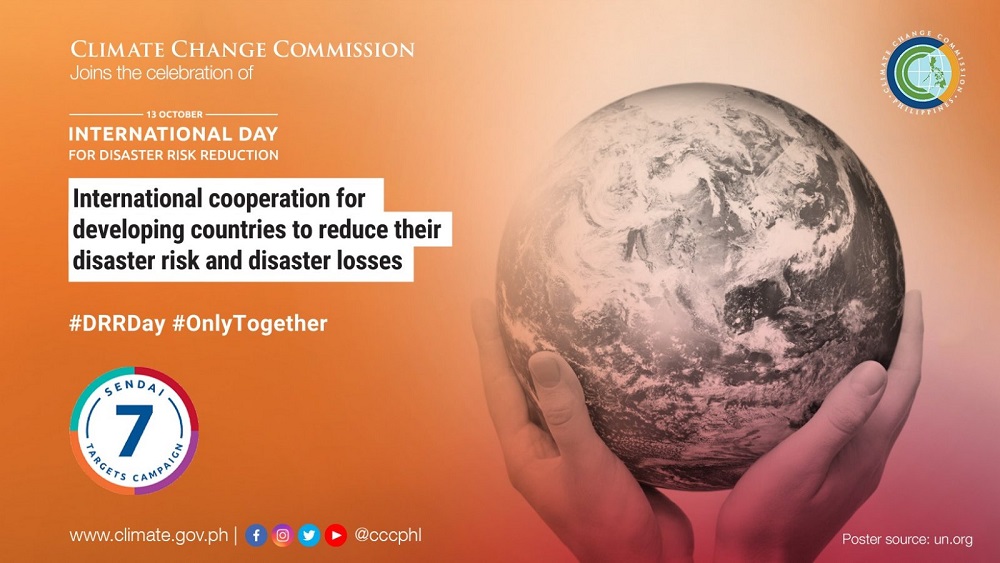
October 12, 2021 Tuesday

MANILA, 13 October 2021 — In celebration of the International Day for Disaster Risk Reduction, the Climate Change Commission (CCC) amplifies the call for international cooperation to reduce disaster risk and losses.
October 13 is designated as the International Day for Disaster Risk Reduction through UN Resolution 64/200, which aims to raise awareness on the importance of shifting from post-disaster reaction to pre-disaster action and how countries must build their capacities in managing disaster and climate risk, in line with the Sendai Framework for Disaster Risk Reduction 2015-2030.
The Sendai Framework has seven strategic targets and 38 indicators for measuring progress on reducing disaster risk and losses. The year’s theme focuses on the sixth target: “Substantially enhance international cooperation to developing countries through adequate and sustainable support to complement their national actions for implementation of the present Framework by 2030.”
The CCC said that this year’s target underscores that reducing disaster risk has never been more challenging due to the COVID-19 pandemic and the growing climate emergency.
Disasters disproportionately affect developing countries, particularly archipelagic countries or countries with extensive coastlines like the Philippines, due to higher vulnerabilities and increased risk levels especially in terms of mortality, numbers of people injured, displaced and homeless, economic losses (as a percentage of GDP) and damage to critical infrastructure.
The impacts of disasters, most of which have increased in intensity and have been exacerbated by climate change, often greatly exceed the country’s capacity to respond to and recover from disasters and impede progress towards sustainable development.
For the CCC, there is a need to scale up international cooperation for disaster risk reduction to support climate-vulnerable countries in setting climate change adaptation and resilience-building programs, in order to build resilience and reduce risk against the impact of climate hazards such as droughts, floods and rising sea-levels.
These include capacity-building, technology transfer, and increasing the availability of and access to multi-hazard early warning systems at the local level which are vital to support adaptation in climate-sensitive sectors such as health, water and agriculture.
As COP26 approaches, the CCC hopes that the forthcoming conference will deliver on the promise of significantly increasing levels of global ambition when it comes to both reductions in greenhouse gas emissions and support to climate change adaptation.
Moreover, international cooperation for disaster risk reduction is needed to ensure that our most vulnerable populations, including women, children and youth, people with disabilities, the elderly, migrants and indigenous people, which have contributed the least to the climate emergency, are not abandoned or left behind.